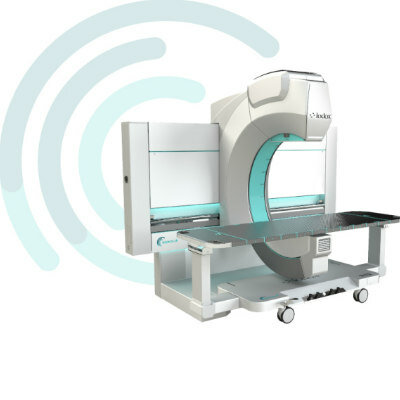MRI

New Cardiology Imaging Tools Include MRI Myocardial Tissue Quantification to Help Fight Cardiovascular Disease
New imaging tools have been designed for a more precise diagnosis of cardiovascular diseases using computed tomography, magnetic resonance imaging, and molecular imaging, as well as utilizing a universal angiography system with sophisticated features for cardiology. More...10 Sep 2014

Neuro-MRI Scanning Reveals Disparities Between Imagining and Remembering
Using functional magnetic resonance imaging, investigators are learning more about where and how imagination processes occur in human brains. Investigators devised a study that would help them distinguish real imagination from related mental processes such as remembering. More...10 Sep 2014

fMRI Shows Earlier Depression Can Lead to Hyperconnected Brain Networks in Young Adults
Depression may be better predicted and understood now that researchers have discovered through neuroimaging that young adults who had previously suffered from depression have hyper-connected emotional and cognitive networks in the brain. More...09 Sep 2014
Nanotechnology Provides an Armory of Imaging and Therapeutic Applications
Scientists have created dynamic nanoparticles that could provide a range of applications to diagnose and treat cancer. Built on a simple-to-construct polymer base, these particles can be utilized as contrast agents to illuminate tumors for MRI and PET scans or deliver chemo and other therapies to kill tumors. More...08 Sep 2014
Transarterial Chemoembolization Contrast Agent Approved by French National Agency for Liver Cancer
An imaging agent has been recently approved by the French National Agency for Medicines and Health Products for selective hepatic intra-arterial injection for visualization, localization, and vectorization during chemoembolization of tumors in adults with known, intermediate-stage hepatocellular carcinoma. More...07 Sep 2014

In Other News
MRI Tracks Infant Brain Growth in First Months of Life
Diffusion-Weighted MRI Becoming Major Tool to Diagnose Patients with Transient Ischemic Attacks
Ultrahigh-Field fMRI Findings May Help Patients Recover from Spinal Cord Injury
MRI Guidance, Remote-Controlled Catheter Technology May Improve Visualization of the Brain During Stroke Treatment
Self-Assembling Nanoparticles Could Optimize MRI Scanning for Diagnosis of Cancer
Retinal Imaging Detects Changes Associated with Alzheimer's Disease

fMRI and Database Show a Dominant Side of the Brain for Handedness and Language
Research Demonstrates MRI Acts as Predictive Marker for Epilepsy Development Following Febrile Seizure
Four Imaging Approaches Can Differentiate Malignant and Benign Breast Tumors
“Nanoconstructs” Designed to Enhance MRI Technology
fMRI Brain Scans Reveal Differences in Adults Who Have Recovered from Childhood ADHD and Those Who Did Not
Terahertz Detectors with Carbon Nanotubes Designed to Improve MRI Technology and Other Image-Detection Applications
Terahertz Detectors with Carbon Nanotubes Designed to Improve MRI Technology and Other Image-Detection Applications
MRI Brain Scans Able to Detect Early Parkinson’s Disease
PET/MR Found Best Imaging Modality for Detecting Coronary Arterial Disease
Brain Abnormalities Revealed in Late Preterm Infants Using MRI
MR Linac Research Consortium to Develop MRI-Guided Radiotherapy for Cancer Treatment
fMR Brain Imaging Sheds Light into Chronic Fatigue Syndrome
Alternative to Epilepsy Surgery Offered by MRI-Guided Laser Treatment
Quantitative Susceptibility MR Imaging Developed to Monitor Multiple Sclerosis
Complete Response Rates Seen in Refractory Melanoma Patients
“Fastener” Molecules Enhance MRI Contrast Agents
MRI Identifies Early Breast Cancer in At-Risk Survivors of Childhood Hodgkin Lymphoma

MedImaging's MRI channel in addition to reporting on MR hardware, informs about the many magnetic resonance applications possible with the technique notably MRI, fMRI, diffusion MRI, MR angiography, MR guided surgery, in addition to industry developments, and safety issues.











